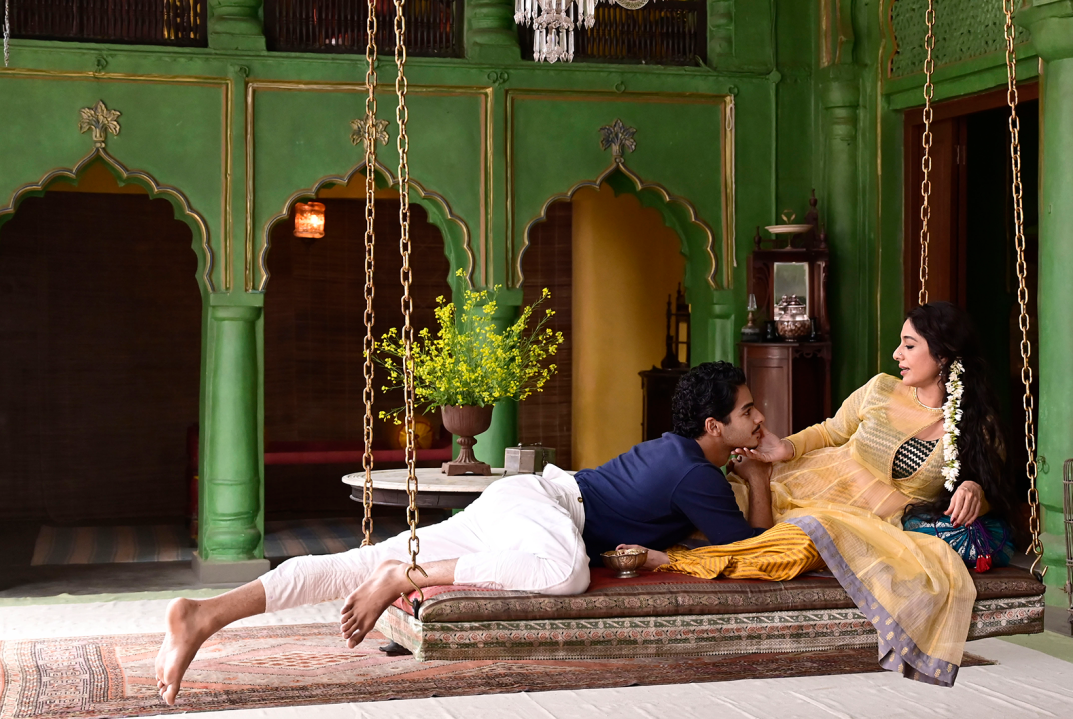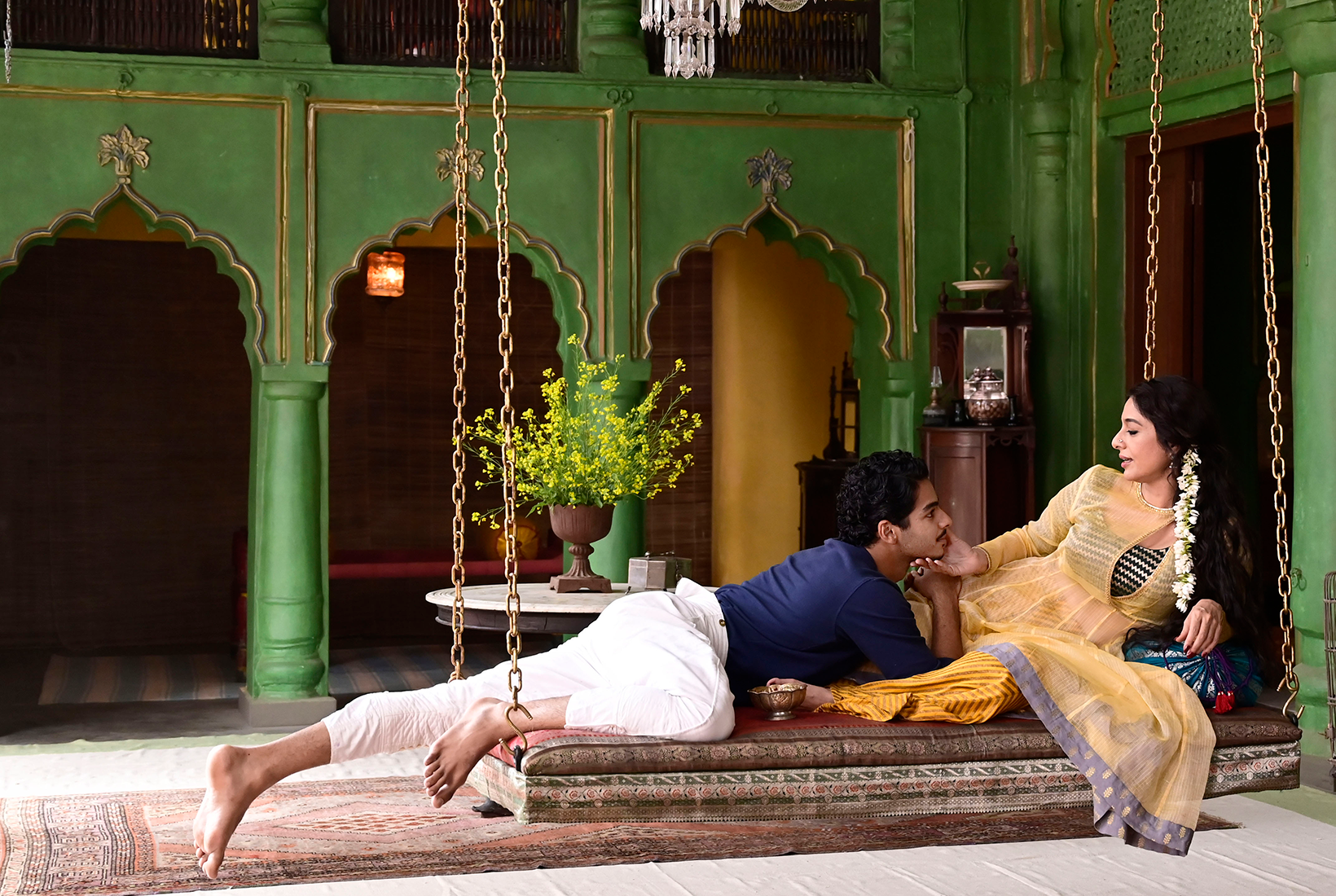Nobody could argue that Andrew Davies isn’t up for a challenge. He’d also surely be a shoo-in for Monty Python’s Summarise Proust competition. After turning both War and Peace and Les Misérables into satisfying, unhurried six-part drama series, he’s now taken on Vikram Seth’s 1,300-page novel A Suitable Boy.
The first episode started with a wedding that immediately established the programme’s visual sumptuousness, while also serving as a handy introduction to the main characters. The groom’s rebellious brother Maan, for example, chafed at the idea that he was supposed to be next. The bride’s spirited sister Lata protested that the newly weds hardly knew each other, before hearing the chilling words from her mother: ‘You too will marry a man I choose.’ We learned as well about the political situation in 1951 in India, where the action takes place. With Partition still raw, there was much talk among mustachioed middle-aged men about Hindu-Muslim relations. And, from that overture, Davies then moved on to display his usual plate-spinning efficiency as he shuttled between the different nascent plotlines.
Maan takes the notion of ‘puppy-dog eyes’ to a whole new level
Many people — including the author himself — have noted Seth’s debt to Jane Austen, with Lata an Indian equivalent of Elizabeth Bennet and her marriage-obsessed mother in the role of Mrs B. These days, though, there’s another, more unexpected resemblance: to a chaste version (if such a thing can be imagined) of Normal People. At her university, Lata discussed the works of James Joyce with a friend. Soon afterwards, she connected excitingly with a handsome fellow student over poetry and accompanied him to the meeting of a literary society. But if the sexual side of their relationship was duly restricted to her looking on yearningly as he played cricket — and, right at the end, a daring kiss — the couple certainly trump Marianne and Connell when it comes to social divisions, because she’s Hindu and he’s Muslim.
Not that Davies is completely deprived of the chance to give us his traditional sex scenes. Maan has fallen for Saeeda Bai, a singer who, luckily for him, is also a courtesan of some repute. At first, he contented himself with taking the notion of ‘puppy-dog eyes’ to a whole new level, and with some impressively lyrical flirting. But eventually the two did adjourn to her suitably large and ornate bed.
Given the sheer amount of business that the first episode had to do, it’s perhaps not surprising that A Suitable Boy has yet to really catch fire. Even so, now that that business has been successfully done, it is warming up very promisingly indeed.
When I was at university, my English tutor used to maintain that King Lear is a satirical tragedy: every time one of the good characters tries to cheer himself up by saying that at least things can’t get any worse, they instantly do. It’s a theory that I’ve been constantly reminded of while watching Once Upon a Time in Iraq (BBC2). On Monday, the series reached its third episode, where the various rock bottoms of previous weeks — the collapse of the country’s infrastructure, the increasing American violence to civilians, the utter disillusionment of those Iraqis who’d welcomed the invasion — were revealed as little more than throat-clearings for the chaos that followed.
The episode opened in Fallujah in March 2004 (ten months after George Bush had declared ‘mission accomplished’) when four Americans were killed with hand grenades and their charred remains strung up from a bridge. Yet, as the narrator inevitably pointed out: ‘There was worse to come.’ The reports of prisoners being tortured at Abu Ghraib prison conclusively ruled out any remaining chance of winning the battle for hearts and minds. Fallujah itself became what the New York Times journalist Dexter Filkins called ‘a giant car-bomb factory’. Enough jihadis poured in from other countries for an Iraqi franchise of al-Qaeda to be set up — and to take control of the city.
As ever, the episode began by announcing that the politicians ‘have had their say’, before handing over to a remarkable selection of witnesses: civilians, soldiers and journalists. Yet, as ever too, their testimonies were so gut-wrenching and so seemingly unanswerable in their condemnation of the way the war was fought that you couldn’t help wishing we could see the reaction of Tony Blair, George Bush and Donald Rumsfeld to what we were hearing.
In March 2003, Glencairn Balfour Paul — former British ambassador to Iraq, Jordan and Tunisia, and pretty much the definition of an old Arab hand — watched the television coverage of the first bombs falling on Baghdad with his wife. ‘This folly,’ he told her straight away, ‘will lead to civil war in Iraq and sectarian violence in other parts of the region.’ Presumably, his advice would have been freely available to Blair had the prime minister seen fit to ask for it.







Comments